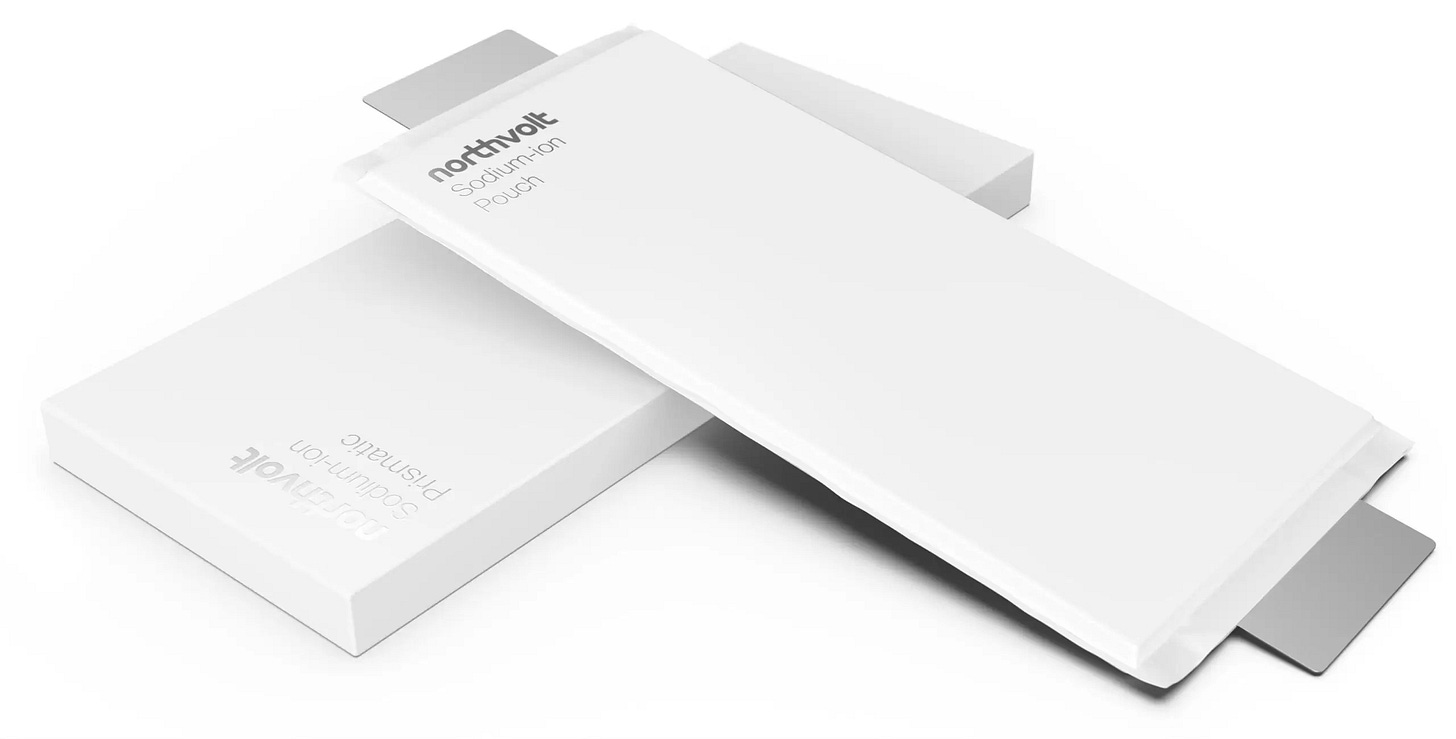Northvolt announce sodium Ion battery plans; Northern Gritstone invests £2M in sustainable bioplastics;
Eliq has secured €10 million in a growth round
Northvolt announce sodium Ion battery plans
Northvolt surprised the industry by developing a high-performance sodium-ion battery, showcasing energy density exceeding 160 watt-hours per kilogram. Validated at Northvolt Labs in Sweden, this innovation is touted as safer, more cost-effective, and environmentally sustainable than traditional nickel, manganese, cobalt (NMC) or iron phosphate (LFP) chemistries.
Leveraging abundant minerals like iron and sodium, this battery, free from lithium, nickel, cobalt, and graphite, marks a significant step in advancing energy storage. Northvolt is set to industrialise Prussian White-based batteries, aiming to make them available commercially. The company also plans to construct a new battery factory in Canada.
Why it matters
China dominates the global lithium-ion battery market, controlling the majority of the supply chain, from processing to battery components, cells, and packs. The nation, known for its "go big or go home" mindset, seized the opportunity two decades ago when interest in lithium-ion batteries was limited. During the era of globalisation, many nations, including the US, relied on others for manufacturing until disruptions like COVID-19 prompted a reassessment of supply chain dynamics.
Source: Northvolt
Northern Gritstone invests £2M in Floreon's sustainable bioplastics
Northern Gritstone, an investment firm, has injected £2 million ($2,5 million) in Series A funding into Floreon, a bioplastics developer from the University of Sheffield. Floreon's innovative bioplastics, derived from plants like corn and sugarcane, rival the performance of Acrylonitrile Butadiene Styrene (ABS), a common plastic polymer used in various industries. As over 99% of the world's plastics come from fossil fuel-derived chemicals, Floreon's bioplastics offer an eco-friendly alternative.
Floreon’s bioplastics production can reduce carbon emissions by up to 7x compared to traditional oil-based plastics.
Why it matters
The global bioplastics and biopolymers market is anticipated to reach $27.3 billion by 2027.
Source: Tech
Eliq has secured €10 million in a growth round
Swedish software company Eliq has secured €10 million in a growth round, combining investment from existing backer Inven Capital with new support from Axpo and Valkea (Fortum’s early-stage investment arm). Both Axpo and Valkea are existing corporate venture capital investors of Eliq's current clients. Alongside additional debt financing, the funds will be utilised to expand Eliq’s Home Energy Efficiency platform across Europe. Eliq's platform enables utilities, banks, and smart home providers to offer customers insights into energy data, promoting sustainable decisions and a reduction in carbon footprint.
Founded in 2016, Eliq focuses on accelerating the shift towards more sustainable home energy use by simplifying energy data interpretation.
Why it matters
Household energy savings are paramount, especially when households account for a substantial 27% of final energy consumption.
Source: Eliq
Startup of the week
Manta Ray EV — is creating an Airbnb-like experience for EV charging.
Manta Ray was founded in 2022 by Mark Miller. The prototype Dapp was born with a built-in MREV token. Manta Ray EV is revolutionising EV charging with a platform akin to Airbnb, connecting EV drivers with private charging point hosts. Enabling bookings and payments, the platform facilitates a shared economy for charging infrastructure, optimising underutilised residential EV chargers. With a privacy-focused approach, including KYC verification and blockchain-enabled community self-regulation, Manta Ray aims to enhance access to EV charging, particularly in areas where public chargers are financially unfeasible, creating new business opportunities and customer relationships.






